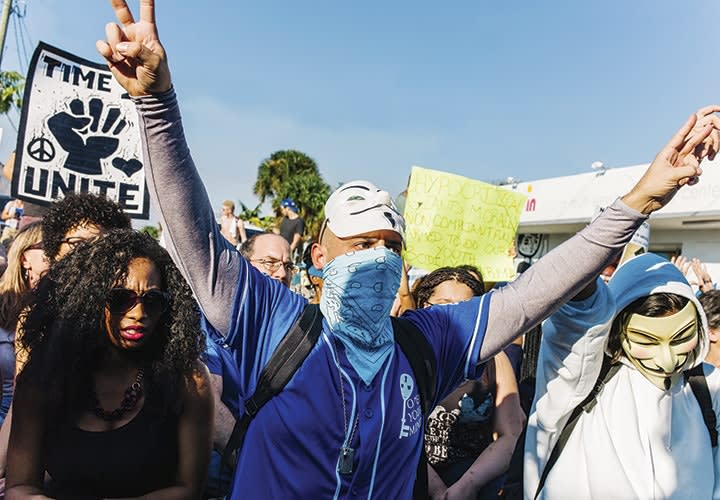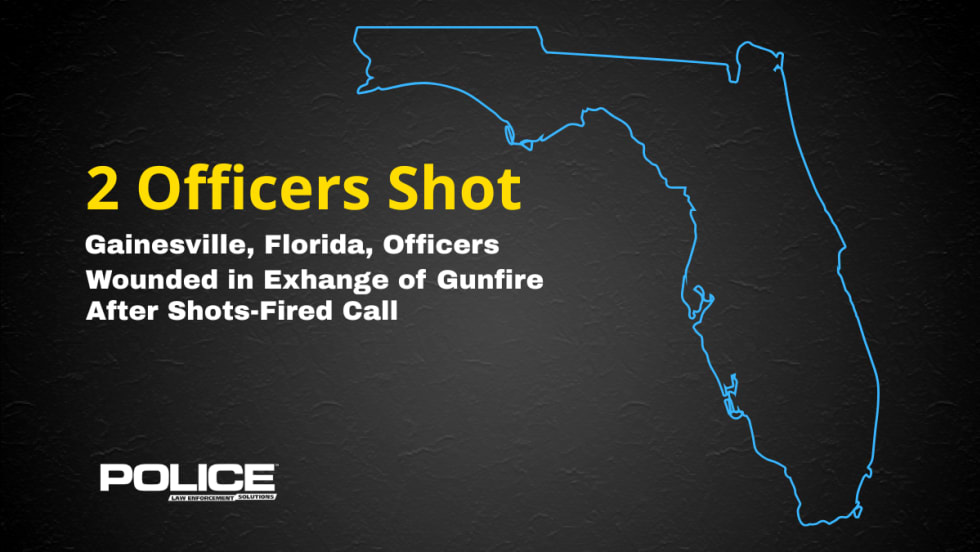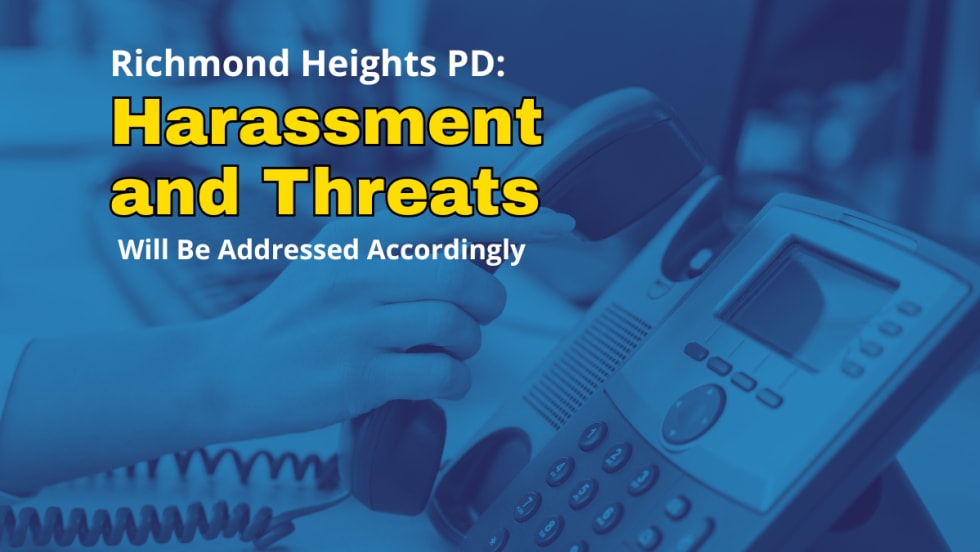It’s not the police, it’s the public who are ignorant of the law and need additional civil rights and civil responsibility education.
In the wake of the officer-involved shootings of Philando Castile in Falcon Heights, MN, and Alton Sterling in Baton Rouge, LA, and the assassinations of five Dallas-area officers and three Baton Rouge-area officers; I have been doing non-stop interviews with reporters from the national and international news media.
A number of these journalists have been asking me about the de-escalation training I produce for law enforcement. They ask what the “de-escalation” concept refers to and how it works. They ask, “Shouldn’t the police be getting more de-escalation training?” While I generally respond that it is always a good idea that street officers receive more training; I have taken a different view that I’ll share with you. If you agree with me, I hope that you will share this article with others you know; especially the news media and detractors of law enforcement.
Before I begin this discussion, let me introduce myself. I have been associated with professional law enforcement for more than 40 years. I come from a law enforcement service “family.” My wife was a member of the Los Angeles Police Department and one of our sons is a police officer. I have been a street officer, undercover officer, detective, academy instructor, and an academy director. I have trained officers for 36 years nationally and internationally and began teaching de-escalation courses after the infamous Rodney King riots in the early 1990s. I have also taught at every level of the American education system up to university master’s degree programs.
Given that background, here are some of my thoughts on what is happening in the public’s encounters with law enforcement and how to address the problems that are occurring.
Officers are More Educated in the Law Than the Public—There has never been a more diverse, better educated, well-trained, and technologically advanced law enforcement community than the men and women serving in American law enforcement today. Police academies today are more like miniature universities accredited through community colleges, where officers receive undergraduate credits for course work.
In most states police recruits study and are tested in more than 43 separate topics of instruction during an intense six-month academy. During this period, they must demonstrate written and physical/practical competency with a minimum passing score of at least 80% in all subjects. Cultural and sexual diversity, tactical communication, laws of arrest/search and seizure, civil rights, victimology, preliminary investigations, forensics, mental health, drug influence, traffic enforcement and investigations, physical training, and use of force/deadly force comprise just a few of the many subjects covered. This level and time compression of education and training is far more demanding; and more intellectually and physically challenging than any university I know.
The reason that police academies are far more demanding than universities is because police officers must deal daily with the real and not theoretical difficulties, challenges, and risks of society. Officers are trained to respond to and often make split-second life and death decisions under circumstances that the U.S. Supreme Court has described as “rapidly evolving, tense and uncertain.”
The police academy is just the beginning of a probationary officer’s training experience. After the police academy, comes a three- to four-month Field Training Program, where recruits are intensely supervised by personal Field Training Officers (FTOs) and evaluated each day on over 30 separate codified police practices. After the FTO program, police recruits are shadowed on their calls for another six months before being considered as a “solo beat officer.” Police recruits also undergo a probationary period of from one to two years before being accepted as fully certified officers.
Now let’s compare the education and training that police officers receive to that of some in the general public; including politicians, the liberal media, and the activists of the Black Lives Matter movement who enjoy chastising and criticizing police officers.
In the U.S., civil rights are generally not a topic of discussion in middle school and are barely covered in high school. Rather, students learn about civil rights leaders and perhaps their First Amendment rights of freedoms of speech and assembly. Fourth Amendment rights pertaining to law enforcement encounters, detentions, arrests, and searches and seizures are almost never covered. Appropriate behavior during police encounters, the rule of law and police practices are rarely if ever covered unless one takes a constitutional law class in college or a university.
Nearly every university professor I am acquainted with who teaches constitutional law, has little to no idea how police officers are trained. They lack an understanding in the legal concepts of an officer’s “collective knowledge.” They generally misunderstand the standards of proof officers rely upon to stop/detain, investigate, search and/or arrest such as reasonable suspicion and probable cause. They know very little about federal case law standards of police practices. This becomes evident when I am asked to step into their classrooms to teach these concepts and I quiz their university “scholar” students in master’s degree programs. This is disgraceful and a true disservice to American society.
The Public Needs More Training—I have come to the conclusion that it is generally not the police who need more training including “de-escalation,” diversity, sensitivity and civil rights training; it is the American public. The members of the Millennial Generation have absolutely no understanding of what their actual civil rights are – and more importantly, are not. They have no idea what the legal constraints are with respect to their behaviors during police encounters. They have no awareness as to why they get detained and arrested for the stupid things they say and do. And truthfully most of their parents are even more ignorant than their offspring.
Young people and most adults have no understanding of how police officers are trained and how that training combined with their non-compliant, suspicious, potentially threatening and/or active physical resistance become part of the calculus of the peaceful, or defensively forceful response by police their actions precipitate.
A Simple Rule to Live or Die By—Literally every so-called “controversial,” high-profile officer-involved death case bears example of this one simple fact. People who don’t make stupid life decisions; are compliant with police when contacted; and who don’t resist detention or arrest; almost never have problems with police; or end up hospitalized or in a morgue. It’s just that simple. Want some contemporary examples to prove this simple rule? Do the names Michael Brown, Freddie Gray, and Alton Sterling sound familiar?
Sensitivity Training About Officers—It takes a special person to risk his or her life for those who care so little. The public needs to learn that law enforcement officers are not the public’s lackeys. They are not separate from the public. They are the public. They come from the same communities as the people they serve. They are former or current classmates; friends; relatives of the people they serve.
Police do not create society’s problems; they respond to them. People create society’s problems they consistently make stupid life decisions. Young men impregnate teenage girls because they are selfish, insensitive, and controlling. They abandon their children for the same reasons. Teens cut classes and drop out of school because they are too weak; and/or because their father figures abandoned them. Some teens join gangs and/or take drugs for the same reasons.
Young men and women poison their own people with drugs and sentence them to a life of addiction because they have no moral compass. Young men pack guns; rob people; invade their homes and kill each other for all of the above reasons. Young men create genocide within their own communities, knowing that everything they do is criminal and physically and emotionally harmful. It is the public and not the police who need sensitivity training. The police are the sensitive ones.
Police come into depressed, violent, hopeless communities to save people from themselves. And as thanks for risking their lives; they are then chastised, criticized, demeaned, attacked, and killed for their efforts by cowards who resonate with the false narratives of radical groups who seek to overthrow the rule of law.
Understanding De-escalation Training—Police learn very quickly they cannot control people; they can only control themselves. They practice de-escalation training not because they are the ones who need to calm down; but because the people they encounter are often angry, enraged, demented, psychologically unstable, under the influence of illegal drugs, hateful, and/or all of the above.
The general public believe they have rights they don’t have. They think and often tell police that they have no right to stop them for a traffic violation; detain them for suspicion of criminal activity, or when police try to intervene when they are unstable, drug influenced, or suicidal. People pack guns; they move menacingly at officers with weapons when repeatedly ordered at TASER point or gunpoint not to. They provoke officers by compressing time and distance. They verbally or by gestures threaten to beat, stab, shoot, and kill officers. Then when force is used against them, they or their surviving relatives sue “to get paid.”
Where is the Support for Police?—What is far worse emotionally and psychologically for police officers when they are forced to use force and perhaps take a life, is that the uninformed media lines up to support the suspect instead of the police without any forensic facts or evidence that the police did anything wrong. They would rather believe the deliberate lies of Black Lives Matter; race-baiter charlatans like Jesse Jackson and Al Sharpton; or President Obama that it was the police’s fault—the “police acted stupidly.” The media and the charlatans have gotten the forensic facts of deadly police-citizen encounters wrong time and time again. And our naïve, uninformed, low-informed and disengaged public just mindlessly follows along.
There is never an apology or even a concession to police that the media, race baiters, or the Black Lives Matter surrogates were wrong. That’s not the way the “New America” works these days. No, today it’s all about #journalism instead of vetted, investigative reporting. It’s all about assigning blame rather than accepting responsibility for a wrong-doing. That’s the do-nothing, bring-nothing-to-the- table, cowardly society police are forced to work with. It is far easier to yell, scream, and criticize the brave men and women of law enforcement than to put on a badge and police their own troubled, violent communities. That seems to be beneath them.
The Public’s Paradigm Shift—The simple fact is that it is the public who needs de-escalation training. They need to calm down and have a studied response instead of emotionally charged reactions to the police they encounter during pedestrian stops, vehicle pull-overs, and investigative contacts. They need to know that a court of law and not the street is the venue for arguing the justification of a stop or an enforcement action. They need to know that no matter how much they might dislike the police or the reason(s) for being contacted by them, they are legally obligated to obey an officer’s directions, orders, or commands. The American public needs to learn how to listen and not argue with police. Americans need to learn how to temper their behavior and not make stupid, threatening, and potentially deadly bad decisions. Essentially, they need to learn to grow up and mind their manners.
While this may certainly be a “free” society, that freedom is conditional upon obeying the law and it’s hard to argue an opposing view from behind bars, from a hospital bed, or from the morgue.
Ron Martinelli, Ph.D., CMI-V, is a nationally renowned forensic criminologist, police expert, and certified medical investigator, who directs the nation’s only multidisciplinary forensic death investigations and independent review team. Martinelli is the author of the new best-selling book, “The Truth Behind the Black Lives Matter Movement and the War on Police,” (available on Amazon.com). His forensic site is www.DrRonMartinelli.com.












